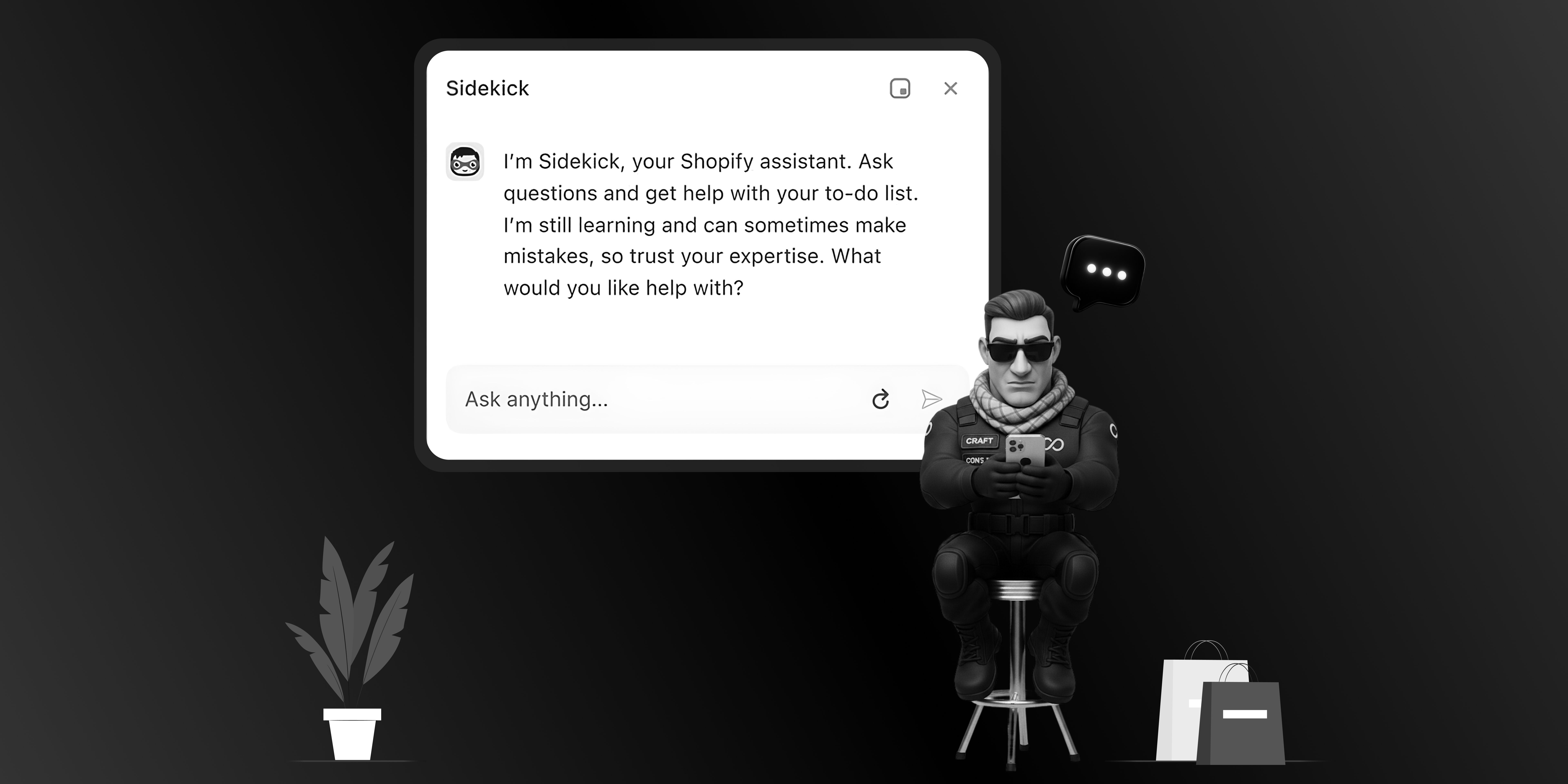
How Shopify Sidekick Can Be a Merchant’s New AI Commerce Partner?

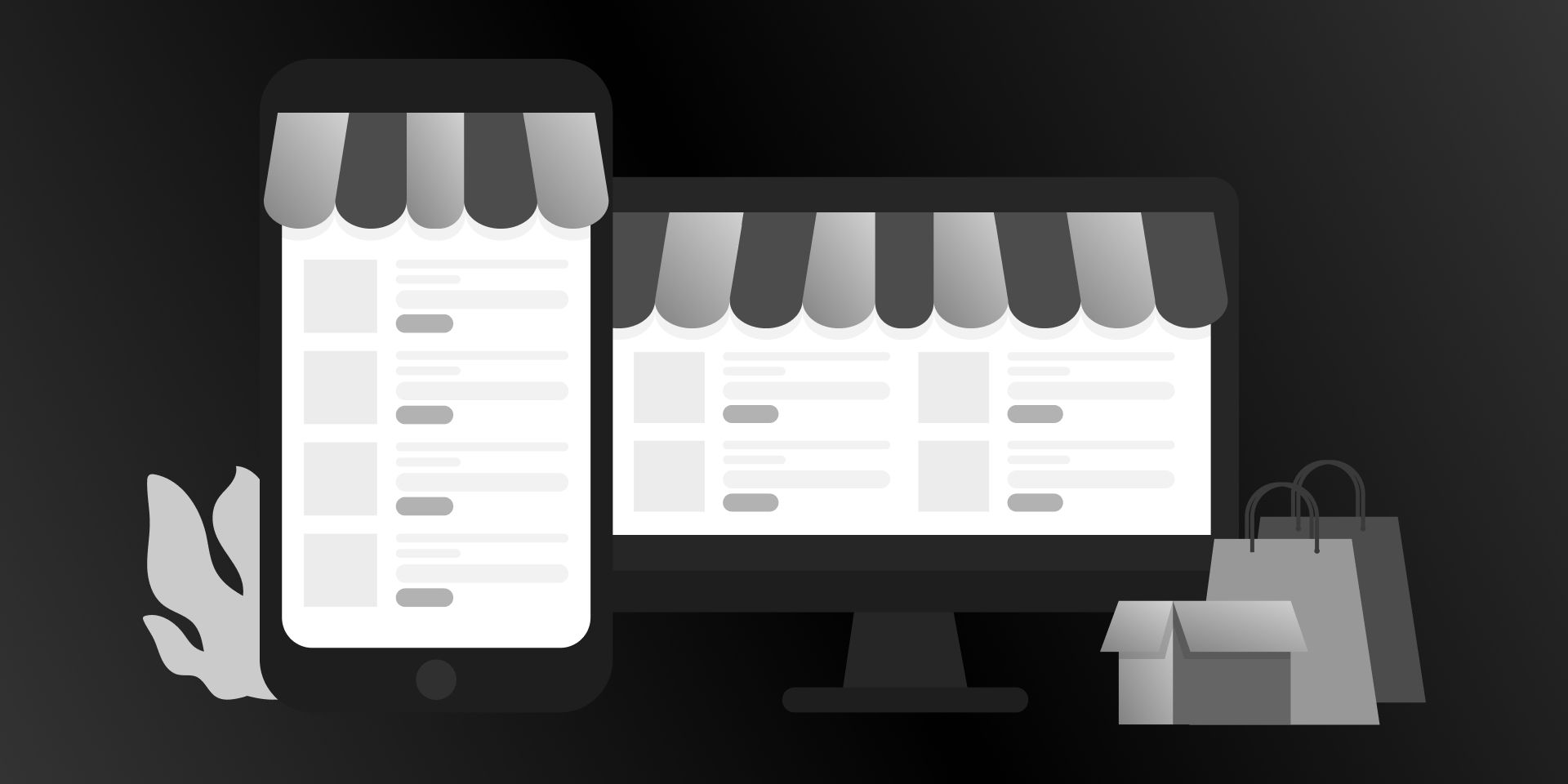
Before starting, let’s just look at some interesting facts.
What do these numbers tell you?
Yes, you're thinking right——it's clear that having a mobile app is a must nowadays if you're running a Shopify store.
Today, mobile apps are not just a luxury; they're basic necessities. With consumers' increasing shift towards mobile shopping, having an app can significantly do what not!
Let's look at why our experience says so.
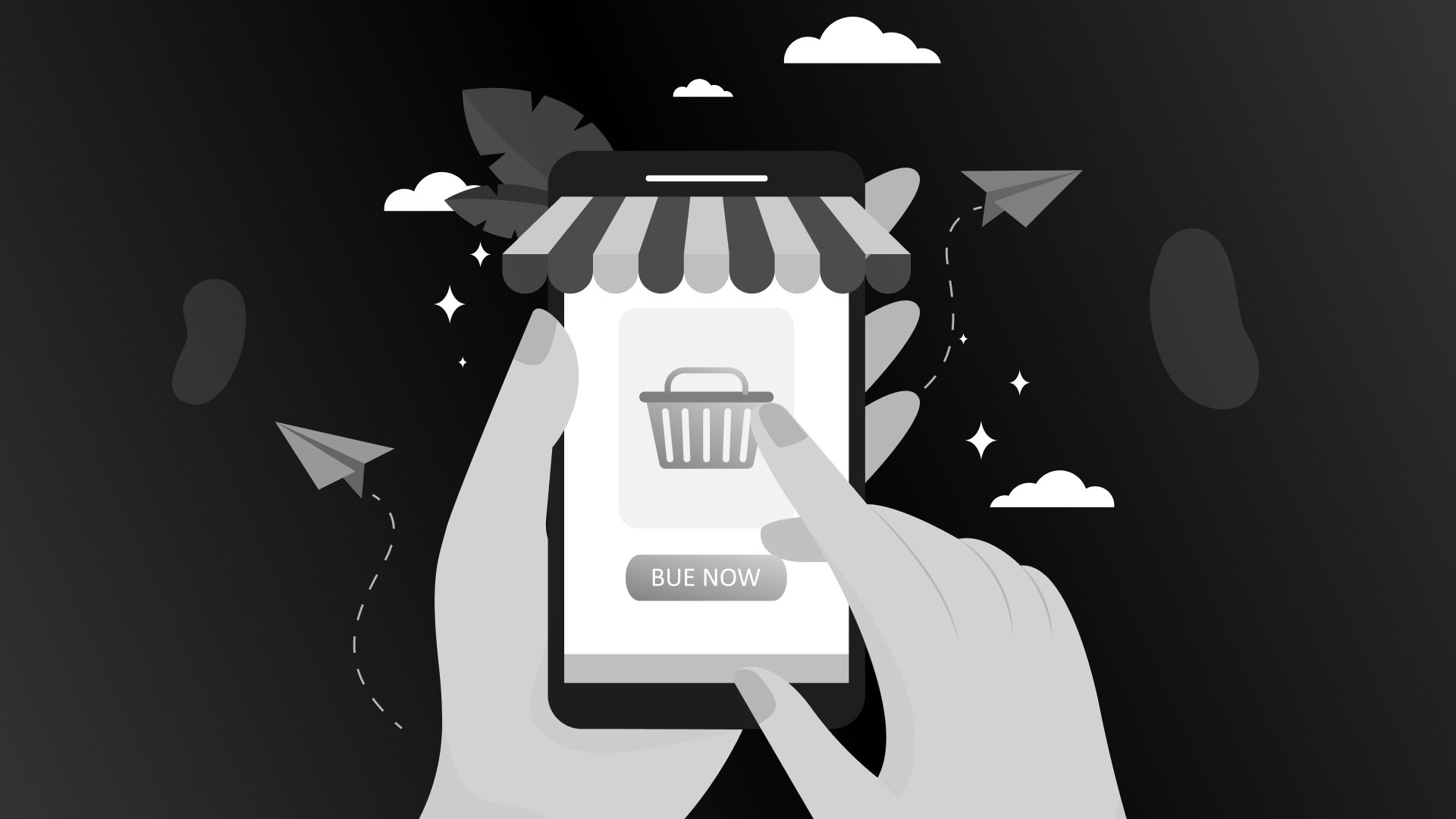
At our agency, we've worked with a range of clients who have different needs
Through our experience, we've analyzed these different scenarios to understand the impact of each approach.
Why convert your Shopify store to an app when you already have a mobile-friendly website? While a mobile-optimized website is a great start, a dedicated app can offer additional benefits that a website alone can't provide.
There are countless reasons for and against creating a mobile app for your store. Ultimately, the decision depends on several key factors and what aligns best with your business goals and needs.
Well, based on our experience, we have some cool reasons why converting your Shopify store into a dedicated e-commerce app could benefit your customers.
If you already have a Shopify store, these insights might help you see the added value of the transition.
Better User Experience: Sometimes, Mobile websites can take time and effort to navigate. Even if your website has the best loading speed, mobile apps offer a smoother, more intuitive experience than the website. With faster load times and easy nav, your customers will enjoy shopping more and spend more time on your app.
Boosted Sales: We have already experienced this—many customers abandon their carts before completing a purchase. This is because long checkout processes and forgotten items lead to abandoned carts. Having a mobile app can help increase your sales. Shopify Checkout is one of the best systems that makes checkout quicker and easier.
Customer Retention: Keeping customers engaged and returning can be challenging because websites can be easily forgotten or neglected on mobile devices. Apps keep your customers right in their pockets with personalized notifications, and you can gently nudge them back to your store whenever they're near or have left items in their cart.
Smart Marketing: Marketing efforts can be scattered and less effective because the traditional method may not reach customers directly or efficiently. However, an app allows for targeted promotions and special offers and connects directly with your customers. It's a fantastic way to keep them engaged and informed about what's new.
Stronger Brand Presence: Being the founder of a store, building and maintaining brand visibility can be challenging. Websites may not always be top-of-mind for customers. An app makes your brand more visible and memorable. Your logo stays on customers' screens, and they'll start associating it with convenience and quality.
Effective Push Notifications: Sending emails and SMS might not always reach or engage users effectively. Push notifications sent through a mobile app have higher open rates and can remind customers of deals, products, or abandoned carts, improving engagement. Whether it's a new product launch or a special discount, notifications help keep your brand at the top of your mind.
Speedy Performance: Research says — apps load much faster than mobile websites. Websites often have slower performance due to various factors. This speed can make a big difference, especially for users who are on the go and don't want to wait.
Easy Interaction: Shopping on websites can be clunky, while it is more seamless on an app. Customers can easily explore your products and make purchases.
When you focus on customers first, your initial profits might be lower, but they can grow 4x over the long term. Suppose you only chase profits and ignore your customers. In that case, you might see higher profits at first—about 5x more—but eventually, profits can drop significantly, and customer satisfaction can also suffer, falling from 4x to a lower level.
Profits are important for any business, but making your customers feel at home and providing a smooth, comfortable shopping experience will lead to greater success and higher earnings over time.
But, but, but…here are 10 signs your Shopify store needs an app ASAP if;
Converting your Shopify store into an app could be a smart move!
After all, it's all about making shopping easier and more enjoyable for your customers
Duh! Shopify allows you to convert your store into a mobile app! This is a great way to improve user experience and tap into a growing mobile audience. However, this process comes with its own set of challenges.
You might think, what challenges now?
Turning a Shopify store into an app requires integrating the Storefront API for front-end operations and the Admin API for backend tasks. This process demands a considerable amount of time, coding, technical expertise and customization to ensure a seamless user experience.
On top of that, there are recurring costs to consider;
Isn’t it such a headache?
With all the coding, customization, and recurring costs, turning your Shopify store into an app can seem overwhelming — never-ending costs!
Well, that’s why we have alternatives like Shopify Mobile App Builders.
But before that, let’s dive into some ways in which you can create a user-friendly app for your customers.
The best way to convert your Shopify store into a mobile app depends on your specific needs, budget, and technical expertise. Whichever way you choose, the goal is to create a seamless, engaging mobile experience for your customers.
So, let’s find out which one best suits your business.
React Native is a popular framework for creating mobile apps using JavaScript and React. It allows you to create an app that runs on both iOS and Android platforms.
You start by writing code in JavaScript and React components. React Native then compiles this code into native code for both iOS and Android, providing a smooth user experience.
| Pros | Cons |
|---|---|
| Here, you can write one set of code that works for both iOS and Android, reducing dev time and costs, as you don't need to maintain separate codebases for each platform. | For some advanced features or performance optimizations, you might need to write native code, which can add complexity to the project. |
| React Native provides performance close to native apps. It uses native components and APIs, ensuring a smooth and responsive user experience. | While React Native performs well for most applications, there is a slight performance overhead compared to fully native apps. This can be an issue for very complex or resource-intensive applications. |
| There is a vast community of developers working with React Native with plenty of resources, tutorials, plugins, and third-party libraries. | Developers need to be proficient in JavaScript and React to work effectively with React Native. |
| Components created in React Native can be reused across different parts of the app, enhancing development efficiency and consistency. |
Swift is Apple’s programming language designed specifically for iOS app development.
It creates native apps for iPhones and iPads.
| Pros | Cons |
|---|---|
| Swift is designed specifically for Apple’s platforms, with a full advantage of the hardware and software features of iOS devices. | Swift is primarily used for Apple’s platforms. To develop for Android, a separate codebase and different development process are required, maintaining two separate projects. |
| Swift’s type system and error handling mechanisms reduce the chances of runtime crashes and bugs, leading to more stable and secure applications. | Developing can be more expensive as it requires specialized iOS developers, who may command higher salaries compared to general cross-platform developers. |
| Swift provides easy access to all the functionalities of Apple devices, including hardware components like cameras and sensors, and software services like iCloud and Siri. | Developing apps for both iOS and Android will take longer compared to using a cross-platform solution that allows you to write one codebase for both platforms. |
| Swift has a modern syntax that is easy to read and write, making it easier for new developers to adopt Swift. |
Kotlin and Java are the primary languages for Android development.
Kotlin is modern and concise, while Java has been the traditional choice for Android apps.
| Pros | Cons |
|---|---|
| Both Kotlin and Java provide full access to Android features, ensuring optimal performance and responsiveness in applications. | Kotlin and Java are primarily used for Android development. To develop for iOS, a separate codebase and different development process are required, maintaining two separate projects. |
| Kotlin offers a modern, concise, and expressive syntax that reduces boilerplate code compared to Java, making development faster and code more maintainable. | Developing in Kotlin/Java can be more expensive because it requires specialized Android developers, who may command higher salaries compared to general cross-platform developers. |
| Both Kotlin and Java benefit from a vast ecosystem of libraries, tools, and community support. This makes it easier to find resources, frameworks, and solutions to common problems. | Since Kotlin and Java are used only for Android, developing apps for both iOS and Android will take longer compared to using a cross-platform solution that allows you to write one codebase for both platforms. |
| Kotlin is fully interoperable with Java, allowing developers to use existing Java libraries and frameworks. This makes it easier to integrate Kotlin into existing Java projects or use Java code within a Kotlin project. |
Now, last but not least, let's talk about Shopify app builders.
If you're looking for a solution with minimal coding but plenty of customization options, Shopify's mobile app builders are your best bet.
We recommend using this approach because it allows you to quickly and easily transform your Shopify store into a mobile app, offering a range of customization features for your brand's needs.
| Pros | Cons |
|---|---|
| These tools generally have fixed pricing plans, making them less expensive upfront compared to custom development. Beneficial for small businesses or startups. | You are limited to the features and templates provided by the app builder. If you need specific functionalities not offered, it can be challenging to implement them. Customization often depends on the app builder’s team. |
| Since these builders come with pre-built templates and features, you can launch your app much faster than building one from scratch. | While the mobile experience is good, it may not match the performance and UI quality of a custom-built native app. |
| These platforms are designed with non-developers in mind. With drag-and-drop builders and various customization options, making it easy for anyone to create an app. | These solutions might not scale well with rapidly growing businesses, leading to performance issues as your user base expands. |
| The app builders take care of maintenance and updates, ensuring your app remains up-to-date with the latest features. | You rely on the service provider for updates and bug fixes. If the provider discontinues the service, you could face significant issues. |
| These tools are designed to integrate smoothly with Shopify, supporting all its functionalities and offering integration with other popular apps. | While the initial cost is lower, you'll need to pay ongoing subscription fees. These can add up over time, and additional costs may apply for premium features. |
However, all these platforms—React, Swift, Java, Kotlin—require time, coding and customization. Each requires ongoing maintenance, and they all have drawbacks.
So, instead of diving into complex coding and handling the ongoing costs yourself, you can opt for Shopify mobile app builders. These builders provide a straightforward and effective way to create a mobile app for your store without the extensive coding and hassle of traditional development platforms.
Our experts recommend the following best mobile app builders for transforming your Shopify store.
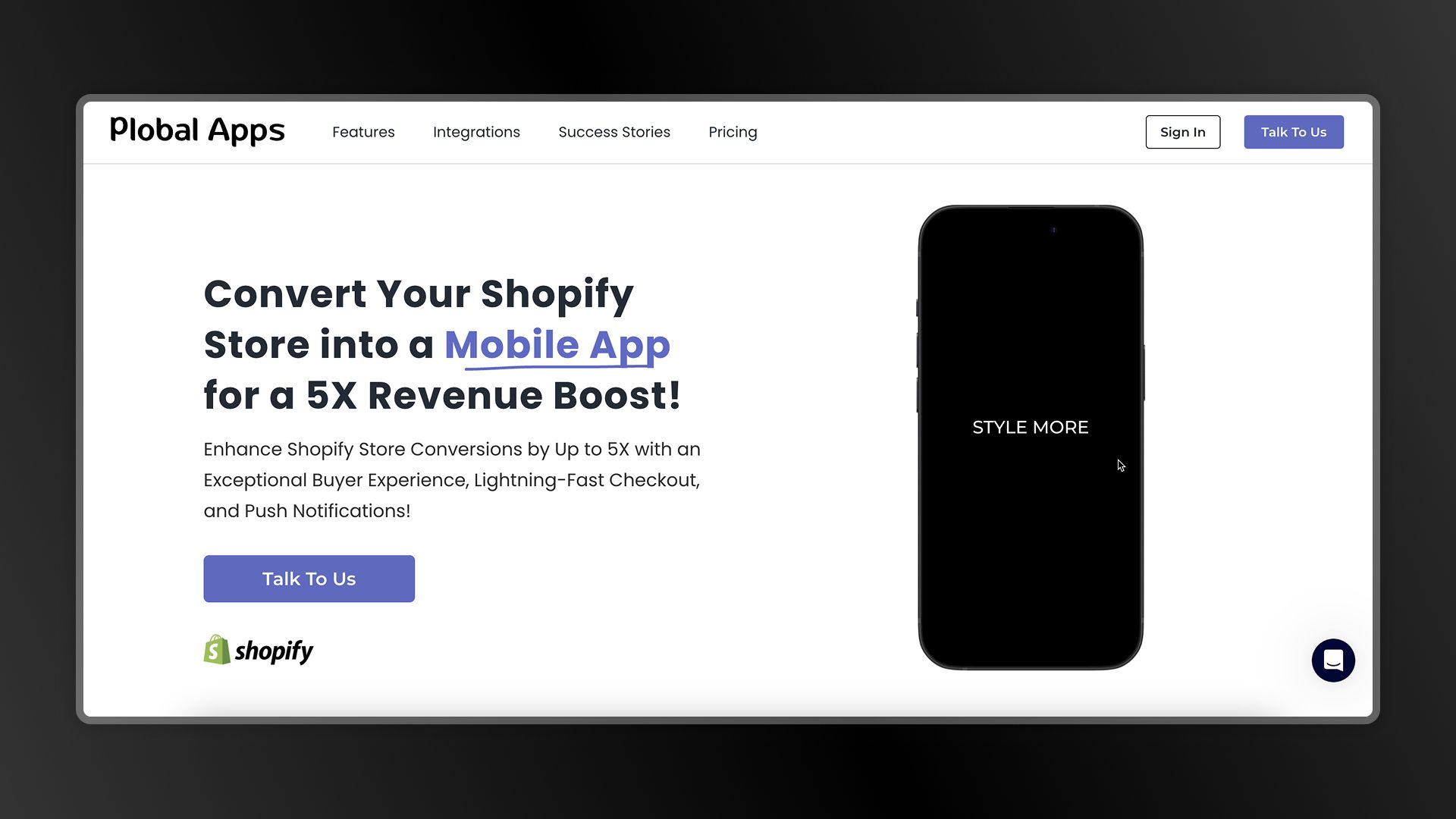
Plobal Apps is a no-code mobile app builder for Shopify stores that improves customer experiences and boosts sales. It offers features like a drag-and-drop editor, push notifications, live selling, AI-based product recommendations, and real-time analytics.
Plobal Apps offers three pricing plans:
Growth Plan:
Price: $199/month or $1,990/year
Features: 4 standard integrations, native iOS and Android apps, a drag-and-drop app builder, unlimited push notifications, email and live chat support, and advanced analytics.
Essential Plan:
Price: $499/month or $4,990/year
Features: 7 standard integrations, abandoned browse campaigns, user segmented notifications, product filter, Apple Pay, and a dedicated success manager.
Enterprise Plan:
Price: $1,199/month or $11,990/year
Features: Unlimited advanced integrations, app personalization, multiple-page setup, customizable fonts, priority support, and more.
For more details, visit Plobal Apps.
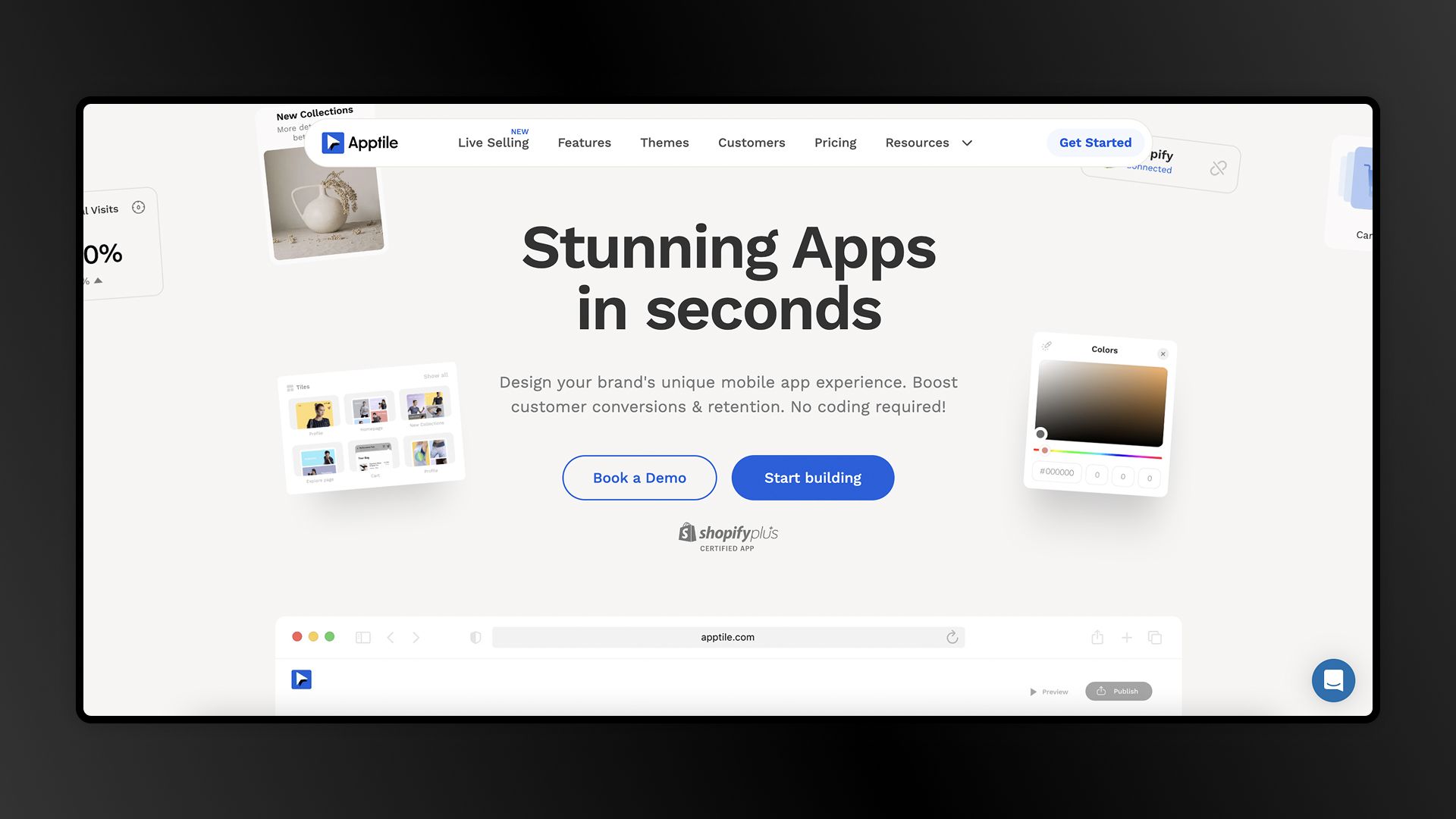
Apptile is a no-code mobile app builder designed for Shopify stores. It allows businesses to create visually stunning and highly customizable mobile apps quickly. Key features include live commerce, AI-powered smart tiles, advanced push notifications, and rich content tiles.
Core Plan
Price: $49/month ($44/month billed annually)
Features: Design with 100+ standard tiles, standard themes, one-page checkout, unlimited push notifications, and three standard integrations.
Pro Plan
Price: $199/month ($179/month billed annually)
Features: Everything in Core, plus premium themes, advanced tile customizations, custom home page, scheduled push notifications, and unlimited standard integrations.
Plus Plan
Price: $499/month ($449/month billed annually)
Features: Everything in Pro, plus a custom product/cart page builder, custom fonts and icons, OTP/social login, advanced analytics, automated push notifications, three premium integrations, and one hour of design consultation.
Enterprise Plan
Price: $999/month ($899/month billed annually)
Features: Everything in Plus, custom themes, custom tiles, 50+ premium integrations, 100 hours of custom development, in-app notification, advanced analytics tab, dedicated designer & developer, dedicated account manager.
For more details, visit Apptile.
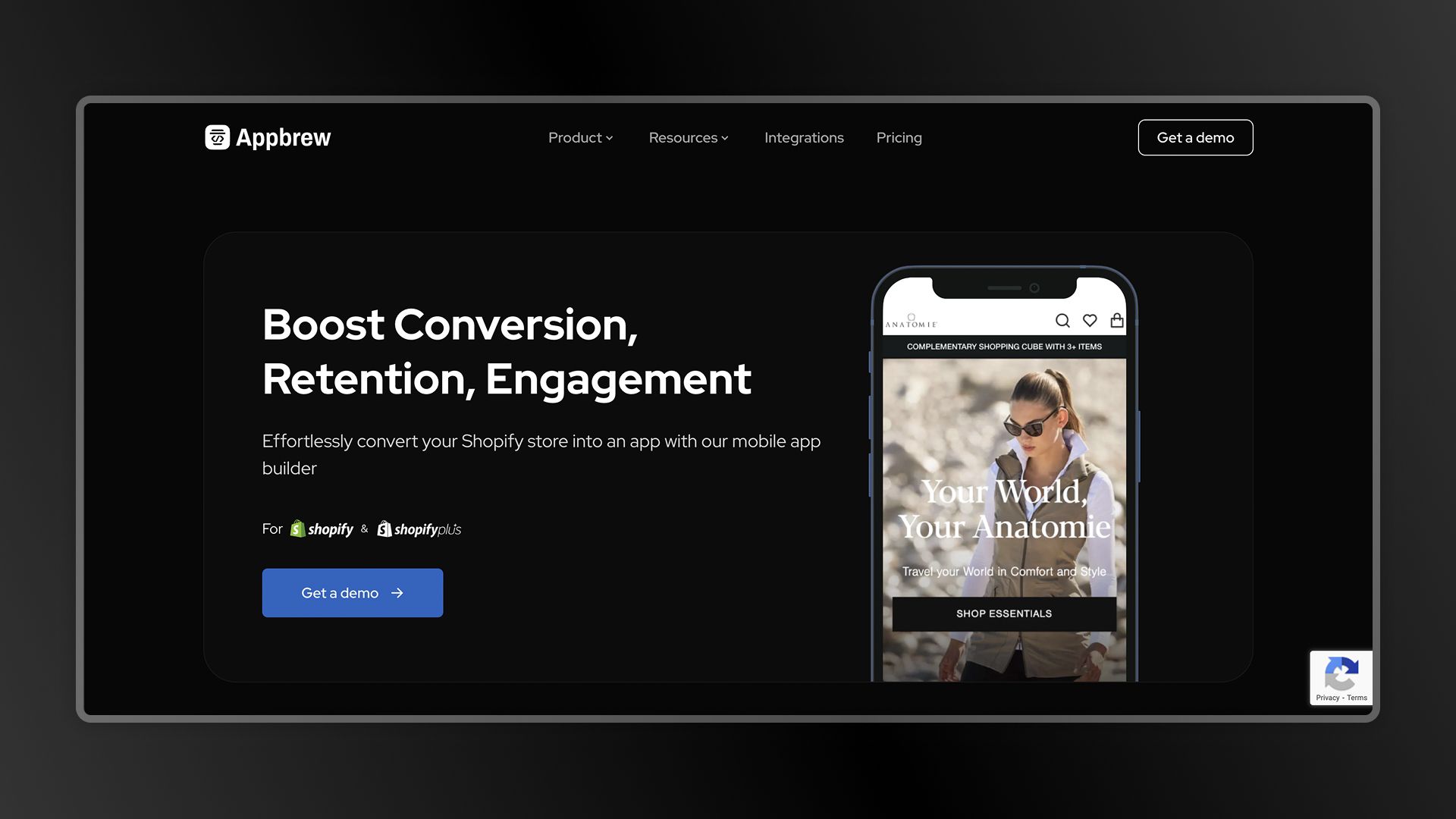
Appbrew is a no-code mobile app builder for Shopify stores designed to boost conversion, retention, and engagement. It allows businesses to effortlessly create native mobile apps that mirror their brand's website. Key features include over 100 integrations, an evolved promotion engine, and actionable analytics.
Appbrew offers two main pricing plans:
Pro Plan:
Starts at $500 per month for up to 5000 Monthly Active Users (MAUs).
Additional $250 for every extra 2500 MAUs.
Includes features such as native iOS and Android apps, real-time sync with Shopify, custom landing pages, app analytics, and 24/7 customer support.
Enterprise Plan:
Custom pricing.
It includes everything in the Pro plan, including additional features like unlimited integrations, an advanced promotion engine, Google and Apple login, multiple PDP & PLP templates, and 24/7 Slack support/customer success manager.
For more details, visit Appbrew.
Here’s a summary comparison of both approaches.
| Comparison | Shopify mobile app builders | Custom mobile app development |
|---|---|---|
| Cost | Generally less expensive; fixed pricing plans; lower initial investment | Higher initial cost; significant upfront investment; cost depends on complexity and features |
| Setup Time | Faster to launch; pre-built templates and features reduce development time | Longer development time; separate codebase for different platforms; longer time to market |
| Coding Requirements | No coding required; user-friendly interfaces; drag-and-drop customization | Requires extensive coding knowledge; team of skilled developers needed |
| Scalability | May not scale well with rapidly growing businesses; performance might be limited | Designed to scale with business growth; better performance optimization |
| Maintenance & Updates | Handled by app builders; continuous improvements from the service provider | Responsibility of the business; additional costs for updates and bug fixes |
| Integration with Shopify | Seamless integration; built-in support for Shopify functionalities | Requires custom integration with Shopify and other third-party services |
| Dependence | Dependent on service provider for updates and bug fixes; potential issues if service is discontinued | Independent of third-party service continuity; more control over maintenance |
| Customization | Limited to provided templates and features; less flexibility for unique functionalities; customization done by the provider | Full control over design and features; tailored to specific business needs |
| User Experience | Good mobile experience, but not as close to native-built application UI | Opportunity to create a distinctive, branded user experience; custom features and functionalities |
| Subscription Costs | Ongoing fees; additional costs for premium features or higher plans | One-time development cost; ongoing maintenance costs |
Using a Shopify mobile app builder is an innovative and efficient way for businesses to create a mobile app without the complexity of custom development. These builders come with easy-to-use templates, seamless integration with Shopify, and don't require any coding skills, making it simple for anyone to build an app quickly.
For small to medium-sized businesses that need a quick, budget-friendly solution, these app builders offer a great mix of features, ease of use, and ongoing support. Our developers highly recommend these three mobile app builders mentioned above from their personal experiences.
They have helped businesses like Snitch, Ala Mode, Elo, Tupperware and many more. Additionally, while bigger, more complex apps couldn't solve specific issues, these Shopify mobile app builders did.
They handle challenges like integrating smoothly with Shopify, launching quickly, and being easy to use. These specialized builders often provide better solutions for Shopify store owners than larger, more general apps, proving that sometimes smaller, focused tools are the best choice for meeting specific business needs.
For more information about Shopify mobile app builders and how they can benefit your business, contact Huptech Web! Our developers, who have extensive experience with these builders, will be happy to assist you.
